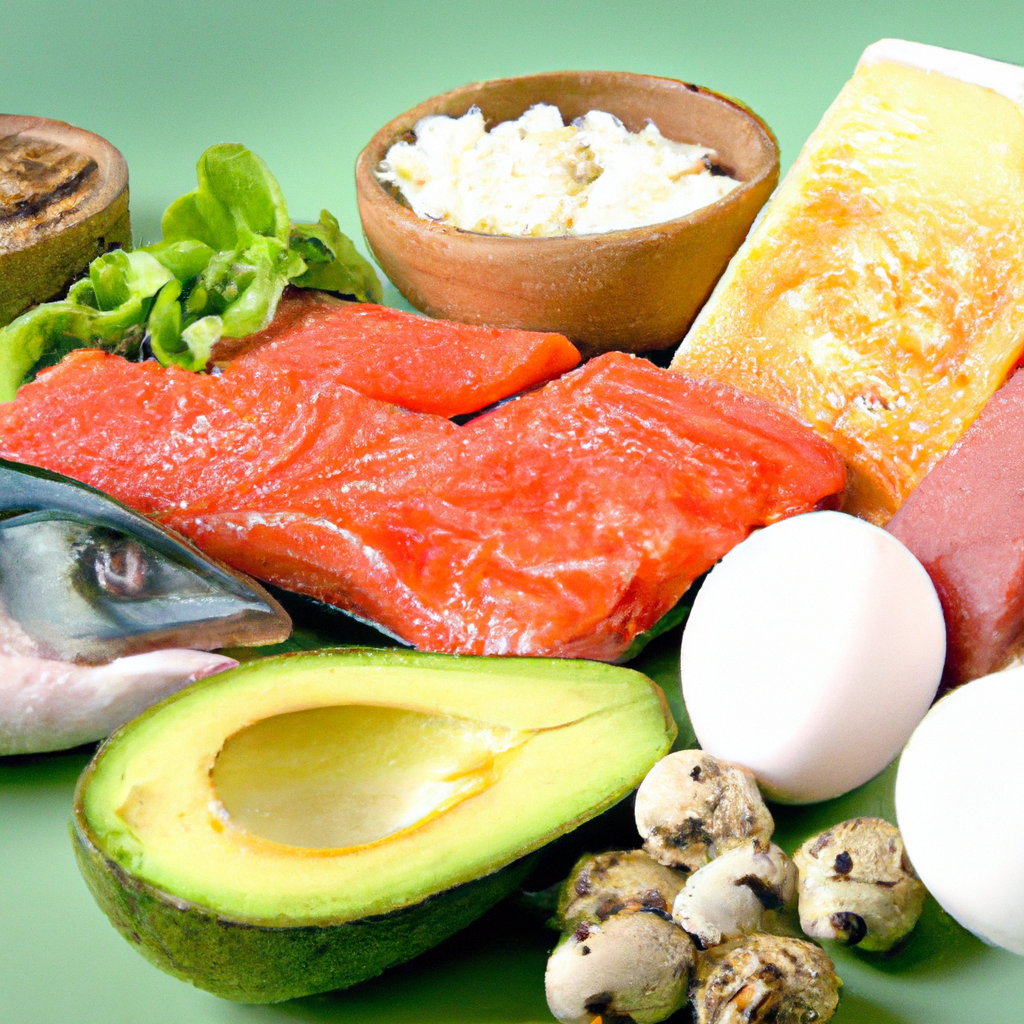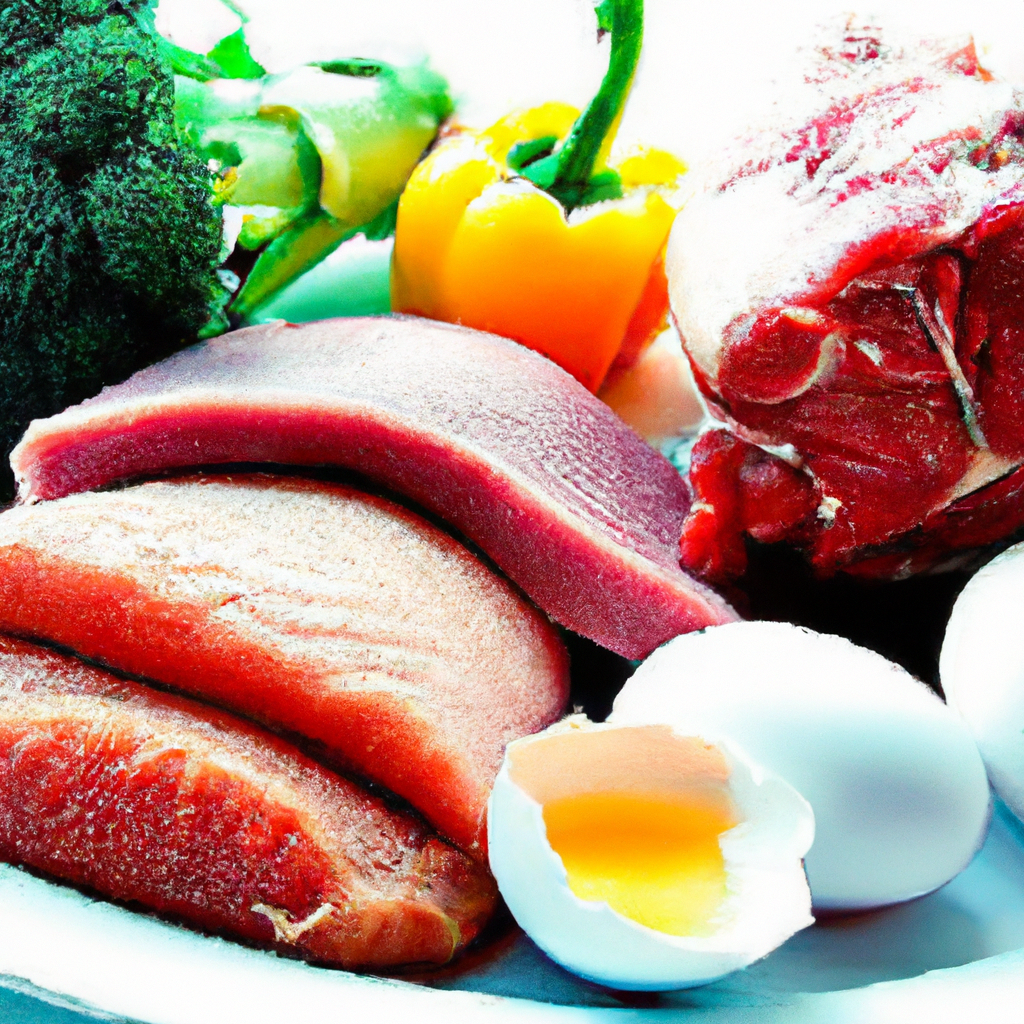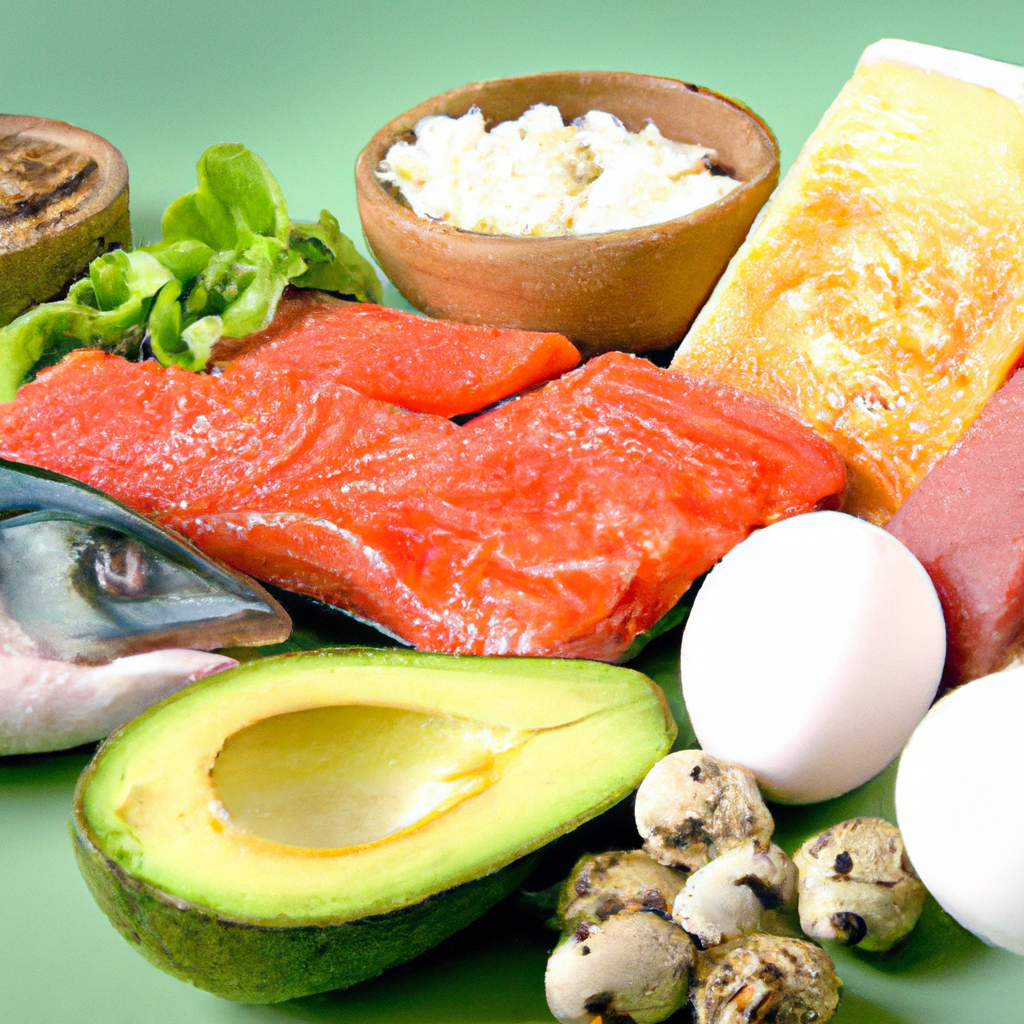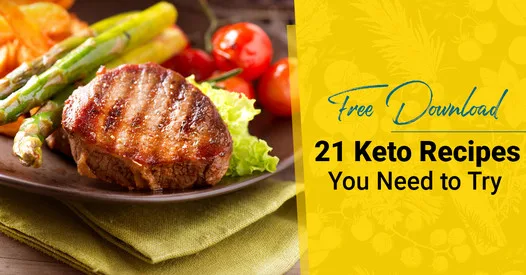As you navigate the abundant information surrounding diet trends, one thread you’ve likely stumbled upon is the ongoing debate: Keto diet versus high protein diet. In the chaotic arena of health and nutrition, these two diet regimens have been pitted against each other, both claiming an array of benefits for weight loss, muscle mass, and overall health. In the enticing battle of Keto vs high protein diet effects, it’s essential to strip down the myths, hype, and marketing so you can make an informed decision best suited to your unique health and fitness journey.

Concept of Keto Diet
The ketogenic diet, famously known as the keto diet, is a nutritional plan that is characterized by high-fat, low-carb, and moderate protein intake. This composition forces your body to burn fats rather than carbohydrates, transitioning it into a state of ketosis, which means your body becomes incredibly efficient at using fat as an energy source.
The basis of Keto Diet
The primary aim of the keto diet is to get your body into a metabolic state called ketosis. When your body is in ketosis, it switches from using glucose (which is derived from carbs) for energy to using ketones. Ketones are compounds that are created when your body breaks down fat. Hence, a low carb intake is necessary to decrease blood sugar levels and allow the body to burn stored fat.
Benefits of Keto
There are several proven health benefits that are associated with the keto diet. Weight loss is the most recognized benefit owing to the body’s ability to lose weight by burning fats for energy instead of carbs. Besides, the diet may help in reducing risks associated with several illnesses including heart disease, cancer, epilepsy, Alzheimer’s, and even acne. Improvement in mental health, lower blood pressure, and fewer migraines are other valuable bonuses.
Challenges of the Keto Diet
Despite these benefits, starting and maintaining the keto diet can be a challenge. The transition to a low-carb, high-fat diet can be harsh with a list of side effects known as ‘keto flu,’ which includes headache, fatigue, and nausea. Additionally, the diet restricts numerous foods and food groups, making it less sustainable for many people. Many dietitians also raise concerns about its deficiency in specific nutrients, which can lead to long-term health issues.
Concept of High Protein Diet
Similar to the keto diet, a high protein diet is another popular dieting approach. As the name suggests, this diet is high in protein and usually lower in carbs.
Defining High Protein Diet
A high protein diet, in its pure meaning, involves consuming more than the recommended dietary intake of proteins, which is about 50 grams a day. On such a diet, proteins make up 20-30% of your daily calorie intake, carbs provide 40-50%, while fats cover 30% of your diet. Proteins are beneficial because they make you feel fuller for longer due to their satiety effect.
Benefits of High Protein Diet
Adherents to this diet can benefit from rapid weight loss, particularly if they keep their carb intake low. Also, a high protein diet can help you curtail your cravings for food, which subsequently may help in managing your weight. Furthermore, consuming more protein can lead to significant muscle gain if coordinated with strength training exercises. As a result, this can boost your metabolism and increase the number of calories you burn daily.
Challenges of High Protein Diet
However, a high protein diet is not without challenges. Consuming large amounts of protein can exert pressure on your kidneys, which can be dangerous for those with pre-existing kidney conditions. Additionally, the diet can also be high in unhealthy saturated fat, depending on your protein sources. Lastly, some individuals might struggle with the digestion of high quantities of protein, causing gastric distress.
Keto Diet and Weight Loss
The significantly low-carb, high-fat nature of the keto diet prompts the body to enter a state – ketosis – where it burns fat for fuel rather than carbs.
How Keto assists weight loss
The keto diet aids weight loss by using your body’s fat stores as energy, leading to quick and significant weight loss. It also helps regulate blood sugar and insulin levels, promoting more fat burning and less fat storage. Additionally, the high-fat content can make you feel fuller for longer, thereby reducing your overall calorie intake.
Speed of weight loss on Keto
The speed at which you lose weight on the keto diet can vary according to your metabolic rate, physical activity, and adherence to the diet plan. However, most people notice a noteworthy weight reduction within the first few weeks due to a decrease in water weight. As the diet progresses, weight loss becomes more steady and gradual.
Long-term effects of Keto on weight
The long-term effects of the keto diet on weight can be positive if the diet is sustained consistently. Yet, adhering to such a restrictive diet over the long term can be a considerable challenge for many. If you discontinue the diet and revert to your previous eating habits, there’s a risk that you’ll regain any lost weight.
High Protein Diet and Weight Loss
High protein diets can indeed help you shed extra pounds and maintain a healthy weight.
Role of High protein diet in weight loss
The role of a high protein diet in weight loss extends beyond simply having you eat fewer calories. Proteins play a crucial role in regulating hunger hormones. They increase satiety, which results in a decreased appetite and fewer calories consumed. In addition, proteins have a high thermic effect, which means your body burns more calories processing proteins than it does processing carbs or fats.
Speed of weight loss on high protein diet
The speed of weight loss on a high protein diet is generally fast initially, especially when combined with a reduction in carbs. After the initial rapid weight loss phase, a more steady and sustainable pace of weight loss ensues.
Long-term effects of High Protein Diet on weight
In the long term, a high protein diet could help you maintain a healthy weight or body mass index (BMI) as proteins are an essential nutrient for building and repairing tissues, including muscles. More muscle mass increases your metabolism, helping you burn more calories even when you’re resting. Nevertheless, maintaining such a diet requires conscientious food choices, regular exercise, and is subject to individual health considerations.

Keto Diet and Energy Levels
Your body’s energy source changes when you’re on a keto diet, which can impact your energy levels.
Effects of Keto on energy
Shifting your body’s primary fuel source from carbs to fat could have mixed effects on your energy. Initially, you may experience fatigue and a decrease in workout performance as your body adjusts. However, once your body is adept at burning fats instead of carbs for energy – a stage known as fat adaptation – many people find their energy levels are stable or even improved.
How Keto diet maintains energy levels
Energy levels on keto are maintained through a consistent supply of ketones. Unlike the rapid highs and lows that can come with a diet high in refined carbohydrates, ketone energy sources are slowly and steadily released, providing the body with a constant and consistent source of energy.
The impact of Keto on physical performance
The impact on physical performance varies among individuals. Some people find that once they are fully fat-adapted, their workout performance improves. Others may experience a decrease, especially with aerobic exercises. But it’s not just about energy; ketosis also has anti-inflammatory effects that could help with muscle recovery after workouts.
High Protein Diet and Energy Levels
A high protein diet can also impact your energy levels and physical activity.
Effects of High Protein Diet on energy
High protein foods take longer to digest and metabolize, which provides a longer-lasting energy source and reduces the need for frequent meals or snacks. But, the reduction in carbs may lead to a drop in readily available energy.
How High Protein Diet maintains energy levels
A high protein diet maintains energy levels by steadily releasing energy throughout the day. However, the lower intake of carbs might require your body to use proteins for energy instead of their primary purpose: rebuilding and repairing body tissues.
The impact of High Protein Diet on physical performance
Protein plays a key role in repairing and rebuilding muscle tissues, which can enhance your workout performance and recovery. Yet, it’s important to remember that carbs are your body’s preferred energy source for high-intensity workouts, so a deficiency can potentially impact performance negatively.
Keto Diet and Cholesterol Levels
The intake of fats is high in the keto diet, which can impact your cholesterol levels in various ways.
How Keto affects cholesterol
Typically, the keto diet raises the levels of high-density lipoprotein (HDL), the “good” cholesterol, and reduce levels of low-density lipoprotein (LDL), the “bad” cholesterol. It can also increase total cholesterol levels.
Health risks associated with cholesterol and Keto
Despite offering benefits, the keto diet could potentially increase your LDL cholesterol levels depending on the type of fats consumed. A long-term elevation in LDL cholesterol could increase the risk of heart disease, particularly in those genetically predisposed.
The good and bad of Keto on cholesterol
The good part of keto’s impact on cholesterol is the increase in HDL, which can be protective against heart disease. But the increase in LDL is the bad part, as it could lead to heart diseases over longer periods.
High Protein Diet and Cholesterol Levels
A high protein diet can also impact your cholesterol levels, but the effects largely depend on the sources of protein.
Effects of High Protein Diet on cholesterol
If your protein sources are high in saturated fats, like red meat and full-fat dairy, your levels of harmful LDL cholesterol may increase. However, plant-based proteins like beans, nuts, and whole grains can help lower cholesterol levels.
Health risks associated with cholesterol and High Protein Diet
Whilst high-protein diets can contribute to weight loss, a diet heavily focused on proteins from animal sources can increase your LDL cholesterol levels, which raises your risk for heart disease. On the other hand, plant-based proteins can aid in reducing your LDL cholesterol and boost HDL cholesterol.
The good and bad of High Protein Diet on cholesterol
While the adverse effects point towards an increase in LDL cholesterol from animal-based protein, on the upside, proteins derived from plants can increase your HDL cholesterol levels, which is essentially good for your heart.
Keto Diet vs High Protein Diet for Diabetics
Both diets can have significant impacts on people with diabetes, considering they both involve substitutions for carbohydrates.
The safety of Keto for diabetics
The keto diet has been proven to help control blood sugar levels and may even reverse certain symptoms of Type 2 diabetes. However, it can cause risky low blood sugar episodes (hypoglycemia) for those on diabetes medication. It is crucial that diabetics considering a keto diet do so under medical supervision.
The safety of High Protein Diet for Diabetics
A high protein diet may help to stabilize blood sugar levels. It also aids weight loss, which contributes to better diabetes management. Nevertheless, the potential for increased kidney disease risk among diabetics requires careful attention and monitoring.
Comparing Keto and High Protein Diet for blood sugar control
Both diets help control blood sugar levels, but in different ways. While keto reduces carbs significantly, a high protein diet replaces some carbs with protein. Consequently, both can result in lowered blood sugar levels, but the keto diet perhaps more significantly so due to its negligible carb allowance.
Sustainability and Adaptability of Keto and High Protein Diet
In the game of diets, a victorious diet is one that is sustainable, meets your nutrient needs, and adapts to your lifestyle and health goals.
Adapting to Keto as a lifestyle
Adapting to the keto diet as a lifestyle can be quite difficult for many due to its restrictive nature. The limitation on carbs means cutting out many common foods, making it less flexible and harder to sustain in the long term.
Adapting to High Protein Diet as a lifestyle
Adapting to a high protein diet is widely considered easier. This diet allows for a wider variety of food choices while still promoting weight loss, which enhances its sustainability. However, the individual’s health status must be considered as certain conditions may require monitoring or restrictions.
Comparison of sustainability between Keto and High Protein Diet
When comparing the sustainability of keto and high protein diets, the high protein diet generally seems more flexible and therefore more sustainable. It allows for a broader range of foods and isn’t as restrictive as keto. Hence, many people find it easier to incorporate into their lifestyle and sustain in the long run. In the end, the best diet is always the one you can stick to and that best caters to your health needs.

